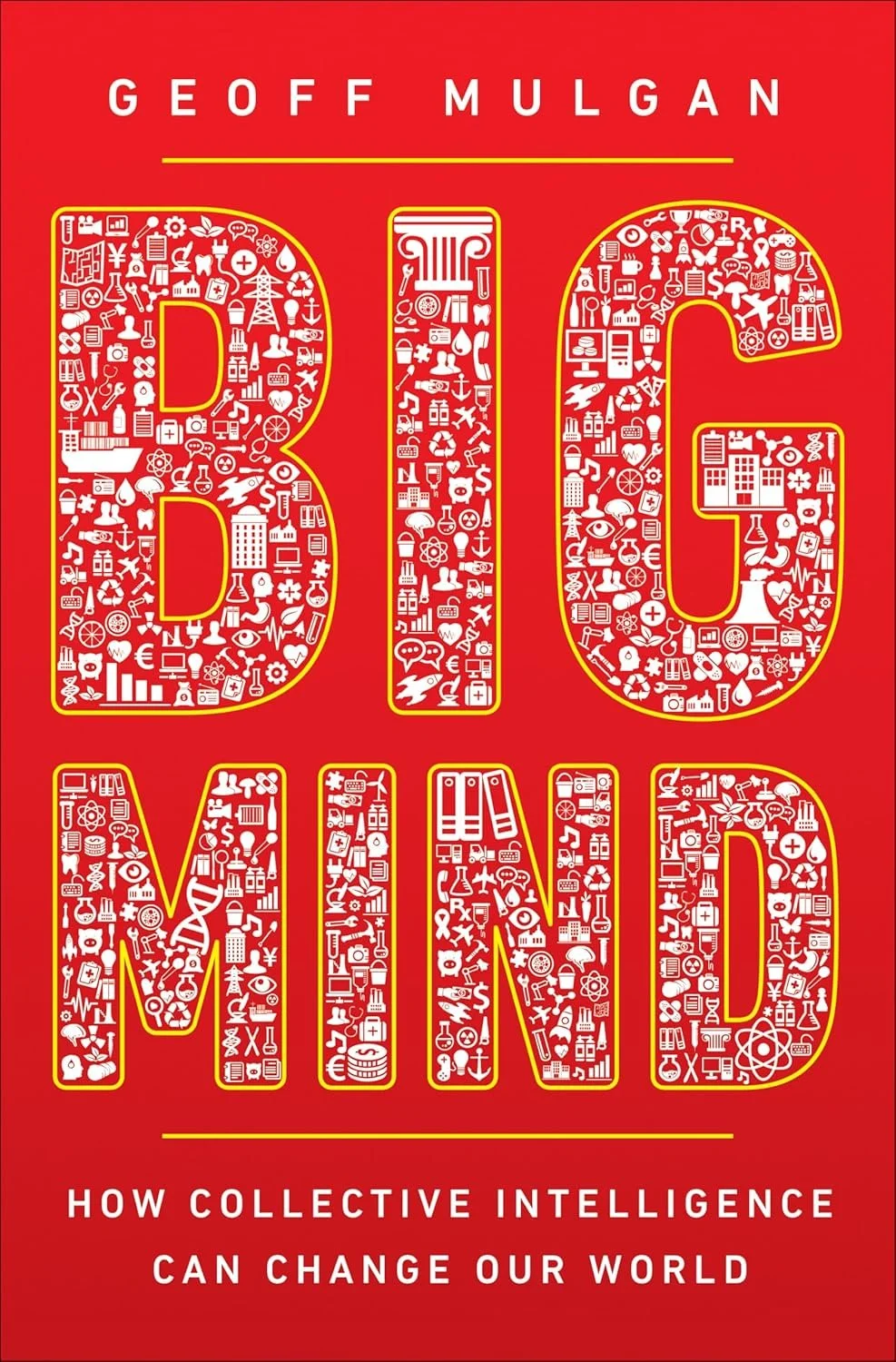Big Mind: How Collective Intelligence Can Change Our World.
A new field of collective intelligence has emerged in the last few years, prompted by a wave of digital technologies that make it possible for organizations and societies to think at large scale. This "bigger mind"--human and machine capabilities working together--has the potential to solve the great challenges of our time.
Description
A new field of collective intelligence has emerged in the last few years, prompted by a wave of digital technologies that make it possible for organizations and societies to think at large scale. This "bigger mind"--human and machine capabilities working together--has the potential to solve the great challenges of our time. So why do smart technologies not automatically lead to smart results? Gathering insights from diverse fields, including philosophy, computer science, and biology, Big Mind reveals how collective intelligence can guide corporations, governments, universities, and societies to make the most of human brains and digital technologies. Geoff Mulgan explores how collective intelligence has to be consciously organized and orchestrated in order to harness its powers. He looks at recent experiments mobilizing millions of people to solve problems, and at groundbreaking technology like Google Maps and Dove satellites. He also considers why organizations full of smart people and machines can make foolish mistakes--from investment banks losing billions to intelligence agencies misjudging geopolitical events--and shows how to avoid them. Highlighting differences between environments that stimulate intelligence and those that blunt it, Mulgan shows how human and machine intelligence could solve challenges in business, climate change, democracy, and public health. But for that to happen we'll need radically new professions, institutions, and ways of thinking. Informed by the latest work on data, web platforms, and artificial intelligence, Big Mind shows how collective intelligence could help us survive and thrive.
Reviews
Fascinating and important’ (Financial Times)
‘Brilliant’ (Kirkus Reviews, starred)
‘Important … a sophisticated analysis of the various human and computational forms of collective intelligence.’ (Professor Howard Gardner, Harvard University);
‘Important, wide-ranging …. inspiring and should be read by all citizens’ (Lord Martin Rees, former President of the Royal Society and Astronomer-Royal)
‘The book the world needs – magnificent’ (Jeremy Heimans, author of New Power)
‘Big Mind brims with pragmatic, unexpected insights. Mulgan filters his awe-inspiring breadth of academic knowledge through the lens of decades of practical experience’ (Professor Scott Page, University of Michigan)
"In Big Mind, Mulgan nails it yet again. How collective intelligence can stay ahead of artificial intelligence is the big question of the day and Mulgan has answers. This is a smart, lucid, and compelling book." — Julia Hobsbawm, author of Fully Connected
"This insightful and broad-ranging book will appeal to business leaders at all levels, from tech giants to start-ups." — Martha Lane Fox, executive chair of Doteveryone
"[Big Mind] charts the emergence of the new field of collective intelligence, which is harnessing human and digital capabilities for collaborative problem-solving on an unprecedented scale. It's an argument with profound implications for the way we organise science, universities, businesses and governments." — James Wilsden, The Guardian
‘A perfect introduction to collective intelligence. . . . The book draws on subjects such as social psychology, computer sciences and economics, as well as the author's experiences as co-founder of the think tank Demos." — "Arab News"
"An engaging and important read." — Paradigm Explorer
"Brilliant. . . . Drawing on such disciplines as social psychology, computer science, and economics, as well as his experiences as a co-founder of the think tank Demos, Mulgan outlines the elements of CI, which has informed collaborations from the Manhattan project and NASA's moon landings to Google Maps and Wikipedia." — Kirkus Reviews
"Mr Mulgan's basic thought is that organisations, like individual minds, can contain highly intelligent elements and yet still be pretty stupid as a whole . . . . The trick is to balance the different sources of cleverness in such a way as to get the best out of all of them." — Oliver Moody, The Times
"One of The Guardian's Favourite Reads of 2017 as chosen by scientists"
"The trenchant questions and thoughtful discussion in Big Mind . . . will help us to reimagine our institutions and convince us of the urgency of doing so." —Beth Simone Noveck, Nature
